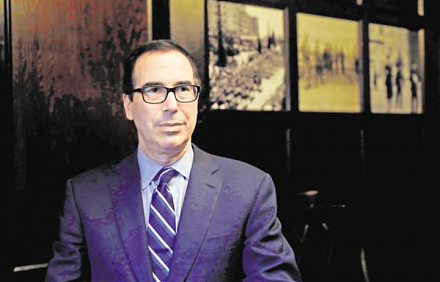

2018-01-10 08:40:00 Wed ET
technology antitrust competition bilateral trade free trade fair trade trade agreement trade surplus trade deficit multilateralism neoliberalism world trade organization regulation public utility current account compliance
President Trump considers imposing retaliatory economic sanctions on Chinese products and services in direct response to China's theft and infringement of U.S. intellectual property. Trump's retaliatory trade sanctions may involve tariffs, quotas, embargoes, and other restrictions on China's investments in U.S. companies. This punitive penalty arises as part of a recent Trade Act Section 301 probe into China's recent regulations that induce U.S. multinational corporations to establish onshore IT data centers. These regulations force unfair intellectual property and technology transfer from these U.S. multinational corporations to their Chinese counterparts. Without such technology transfer, the use and implementation of U.S. patents and trademarks would otherwise involve egregious infringement at the expense of U.S. firms and other innovators.
Recent empirical evidence suggests that this unfair technology transfer may be the root cause of both billions of dollar losses in corporate revenue as well as millions of job losses in America. In addition to intellectual property theft and infringement, the Trump administration also accuses China of currency manipulation. Over the years, China has been accumulating substantial dollar reserves in the form of U.S. Treasury bonds for better renminbi devaluation. This deliberate devaluation leads to more competitive Chinese export prices and thus better low-cost product sales abroad. The Trump administration needs to consider retaliatory trade sanctions on China in order to eradicate trade deficits with better fiscal discipline.
If any of our AYA Analytica financial health memos (FHM), blog posts, ebooks, newsletters, and notifications etc, or any other form of online content curation, involves potential copyright concerns, please feel free to contact us at service@ayafintech.network so that we can remove relevant content in response to any such request within a reasonable time frame.
2019-09-05 09:26:00 Thursday ET

Yale macro economist Stephen Roach draws 3 major conclusions with respect to the Chinese long-run view of the current tech trade conflict with America. Firs
2019-12-16 11:37:00 Monday ET

America and China cannot decouple decades of long-term collaboration in trade, finance, and technology. In recent times, some economists claim that China ma
2021-02-02 14:24:00 Tuesday ET

Our proprietary alpha investment model outperforms the major stock market benchmarks such as S&P 500, MSCI, Dow Jones, and Nasdaq. We implement
2018-10-30 10:41:00 Tuesday ET

Personal finance author Ramit Sethi suggests that it is important to invest in long-term gains instead of paying attention to daily dips and trends. It
2026-04-30 08:28:00 Thursday ET

In the current global market for better biotech advances, medical innovations, and healthcare services, the new integration of artificial intelligence (AI)
2018-01-05 07:37:00 Friday ET

Warren Buffett cleverly points out that American children will not only be better off than their parents, but the former will also enjoy higher living stand